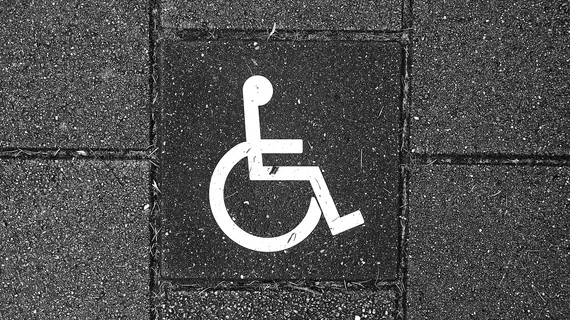Prominent radiology practice accused of refusing imaging services to wheelchair user
A patient advocacy group has filed a complaint against one prominent Connecticut radiology practice, claiming it denied imaging services to a wheelchair user.
The disputes dates to August, when Suzanne Garraffa first contacted East Hartford-based Jefferson Radiology. She has cerebral palsy, uses a wheelchair and required X-ray services, according to the complaint, submitted to the Department of Justice on Feb. 14.
However, the practice allegedly told Garraffa she would need to be able “stand and pivot” on her own to undergo imaging. Otherwise, she’d have to visit a hospital.
“Decades after the passage of the [Americans with Disabilities Act], it is shocking that a large healthcare provider would adopt a new policy barring access to services for anyone who uses a wheelchair unless they can ‘stand and pivot,’” the complaint states. This, despite Jefferson reportedly having served such individuals in the past, including Garraffa, Disability Rights CT noted. “Such denials of access to diagnostic services necessarily mean denials of treatment as well, as other medical providers cannot proceed to provide or prescribe treatment without information from these essential tests.”
The practice—which employs about 90 radiologists, operates nine imaging centers and is part of the larger Rad Partners—issued a brief statement in response to the complaint.
“At Jefferson Radiology, we are deeply committed to providing high-quality, safe and compassionate care for all patients and families who seek our services,” a spokesperson said Friday. “We take all patient concerns seriously and are investigating this matter. We are unable to provide comment further due to threatened litigation.”
Hartford-based Disability Rights Connecticut is urging the U.S. attorney general to obtain an order requiring Jefferson Radiology to adopt a formal nondiscrimination policy, train its staff, and make facility modifications for those requiring mobility accommodations. They’re also seeking $10,000 in compensatory damages, among other requests.
Sheldon V. Toubman, an attorney with Disability Rights CT, said by phone that “this is, unfortunately, not a unique situation.” He’s seen multiple other imaging providers also have to enter into settlements with the Department of Justice, including Philadelphia-based Thomas Jefferson University Hospitals and Outpatient Imaging Affiliates.
He labeled the incident at Jefferson as “indefensible” and an example of “direct discrimination on the basis of disability.”
“Places of public accommodation, like providers of imaging services, have an affirmative duty to make reasonable accommodations for people with disabilities so that they have equal access to services offered to nondisabled people,” he told Radiology Business.

